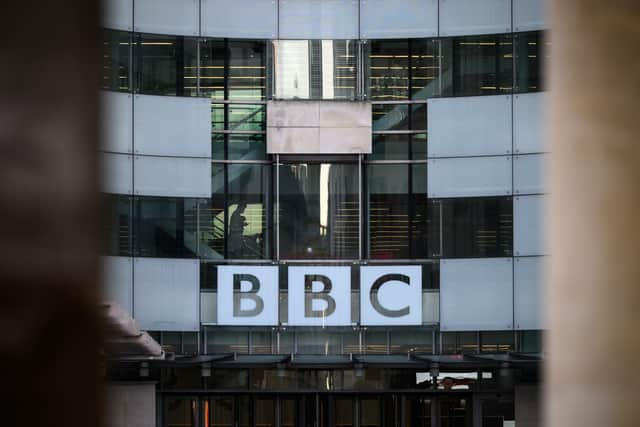BBC cuts: BBC Four and CBBC television channels to close over next few years amid licence fee freeze
and live on Freeview channel 276
The BBC has announced two of its major television channels are set to be axed in the coming years.
BBC Four and children’s channel CBBC are set to be shutdown as the organisation moves towards becoming “digital-first”, BBC director-general Tim Davie has confirmed.
Advertisement
Hide AdAdvertisement
Hide AdThe broadcaster will also close Radio Four Extra, as well as regional television programmes in Oxford and Cambridge.
Around 1,000 jobs are expected to be cut as part of the closures.
It comes after the BBC came under pressure from Culture Secretary Nadine Dorries to save an extra £285million per year after the politician announced a licence fee freeze until 2024.


What have the BBC said about the cuts?
In a correspondance to staff, Mr Davie said: “This is our moment to build a digital-first BBC. Something genuinely new, a Reithian organisation for the digital age, a positive force for the UK and the world.
Advertisement
Hide AdAdvertisement
Hide Ad“Independent, impartial, constantly innovating and serving all. A fresh, new, global digital media organisation which has never been seen before.
“Driven by the desire to make life and society better for our licence fee payers and customers in every corner of the UK and beyond. They want us to keep the BBC relevant and fight for something that in 2022 is more important than ever.
“To do that we need to evolve faster and embrace the huge shifts in the market around us.”
As well as scrapping BBC Four, CBBC, Radio Four Extra and the regional programmes, the BBC News Channel and BBC World News service will merge to create a single 24-hour channel which will serve both UK and international audiences.
Advertisement
Hide AdAdvertisement
Hide AdThe broadcaster has recently welcomed BBC Three back to the airwaves, after the channel was only made available via the BBC iPlayer for five years.
BBC Four and CBBC are expected to take a similar approach as the BBC Three digital service and be made available only on the BBC iPlayer, while Radio Four Extra is expected to be made exclusively available on the BBC Sounds app.
What has been the reaction to the announcement?
The news has been met with criticism from some, including the broadcasting union Bectu.
Philippa Childs, who heads up the union, said the decision to cut 1,000 jobs was as a result of “poorly judged political decisions”.
Advertisement
Hide AdAdvertisement
Hide AdShe said: “We recognise the need for organisations to change and adapt and welcome the BBC’s commitment to step up to the challenges of a changing media landscape and build a digital-first corporation.
“However, once again we see the impact of poorly judged political decisions on workers as the Government’s decision to freeze the licence fee has instigated these real-term job cuts.
“This announcement lays bare that below the political shrill about the BBC is the reality – hugely talented and dedicated people who work hard to deliver critical services to the nation and beyond are now facing yet more job losses and continued uncertainty.
“Bectu will fully engage in every aspect of these proposals and we will be doing everything we can to support our members. We will be working to ensure that change is not cost cutting for the sake of it, but truly does position the BBC strongly for the future and delivers the best possible outcomes for members.”
Advertisement
Hide AdAdvertisement
Hide AdThe Culture Secretary has made numerous announcements concerning the BBC in the past few months, including the introduction of the licence pay freeze and the announcement of a review into the broadcaster’s funding model.
Ms Dorries also issued a legal direction to the organisation as part of a mid-term review which orders bosses to “promote equality of opportunity” for working-class people.
As part of the requriements, the BBC must create 1,000 apprenticeships per year by 202, ensuring at least 30% of apprentices are from a low socio-economic background.
Comment Guidelines
National World encourages reader discussion on our stories. User feedback, insights and back-and-forth exchanges add a rich layer of context to reporting. Please review our Community Guidelines before commenting.
